Eyesight Elegance | Sight Savvy | Eyelid Luminescence
Best Optical Clarity and Eye Care Center in Mathura
At Sharma Hospital Eye Care Center, our mission is to defend and improve your vision. If you are searching for the best eye specialist near me or an eye specialist doctor in Mathura, Our group of skilled ophthalmologists, optometrists, and eye care specialists gives full variety of eye care offerings, from current surgical methods to ordinary eye checks. We use the most cutting-edge developments in treatment. If you’re looking for an eye hospital near me, rest assured that Sharma Hospital Eye Care Center guarantees you will receive the highest quality care for your eyes.
Services
See the world clearly with our precision-focused eye care at one of the best eye clinics in Mathura, where vision meets excellence.
Ophthalmic Technology Services
Deliver precise diagnoses and treatments, while tailoring our approach to each patient’s unique needs.
Comprehensive Eye Exams
Empower patients with knowledge & to identify potential issues early on, ensuring optimal vision throughout life.
Compassion & Accessibility
Exceptional care in a warm and flexible payment options to ensure everyone has access to high-quality eye care.

Normal Vision

Double Vision

Yellow Vision

Blur Vision

Glare and Sensitivity to Light
Glaucoma Eye
A rise in the level of stress within the eye typically constitutes the root of glaucoma, a category of disorders that cause damage to the optic nerve.
It is an important component in permanent eye damage globally and often proceeds slowly without causing any visible signs until substantial loss of eyesight happens. The disorder arises when the humor of water, or fluid in the eye, fails to eliminate itself normally. This leads to an accumulation of pressure that can harm the optic nerve fibers that carry visual information to the mind.
Regular eye exams are crucial for early detection of glaucoma, as therapy can often prevent blindness by slowing the disease’s progression and maintaining vision.
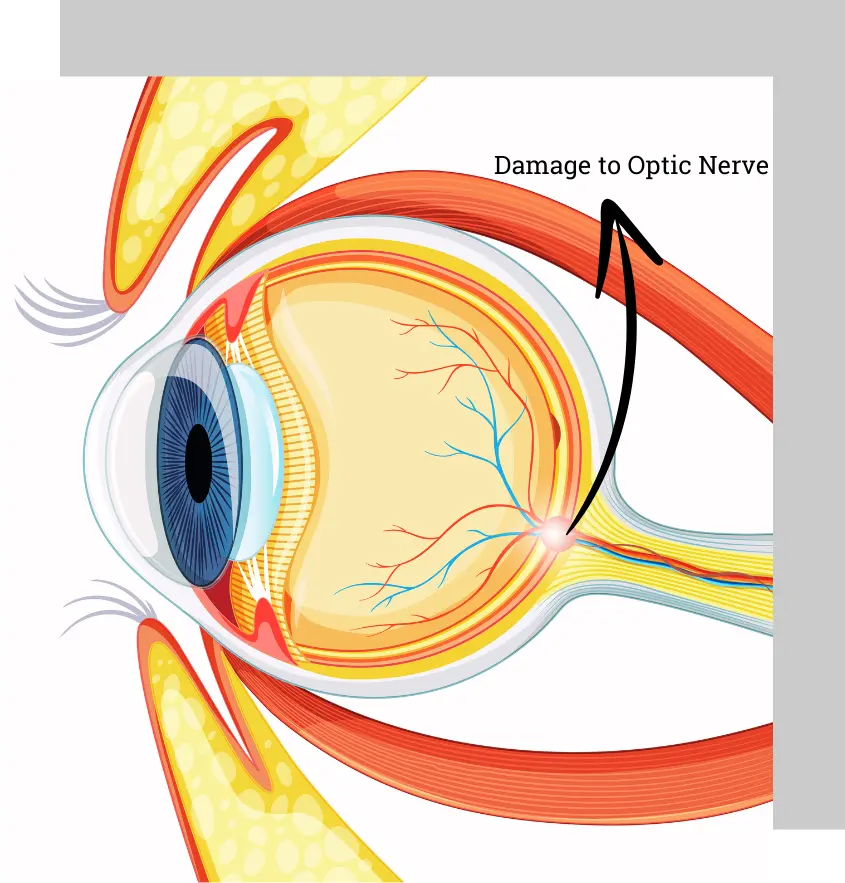
Here Are Some Common Types Of Glaucoma:
Primary Open-Angle Glaucoma
Congenital Glaucoma
Angle-Closure Glaucoma
Pigmentary Glaucoma
Normal-Tension Glaucoma
Exfoliative Glaucoma
Secondary Glaucoma
Neovascular Glaucoma
Retina Eye
Managing careful eye wellness includes adequate handling of the retina, concentrating on the receptive cells covering the innermost layer of the eye that senses light and conveys visual information to the nervous system.
A number of assessments tests, and therapy intended at keeping or improving vision affected by diseases such as macular degeneration caused by advancing age, retinopathy caused by diabetes, retinal detachments, and other illnesses.
For the prompt identification of any unusual behaviors or illnesses, including immediate treatment and care, periodic eye examinations by licensed ophthalmologists or retina specialists are important.
Innovative technologies like injections into the retina and OCT, have greatly enhanced the assessment and surgical options available for retinal circumstances.
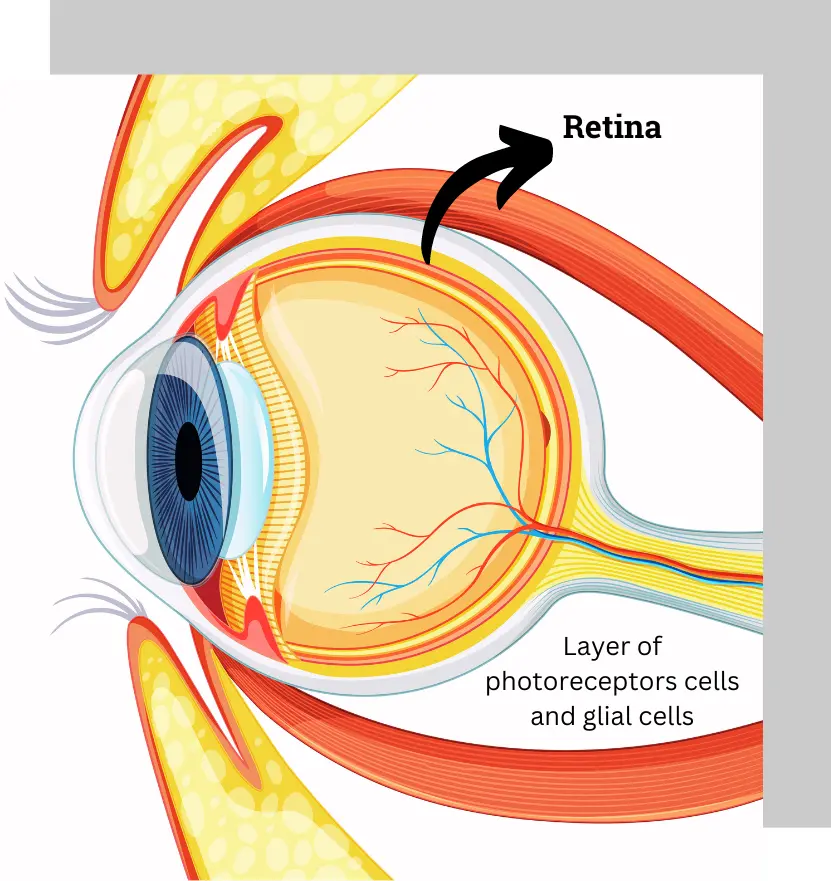
Here Are Some Common Types Of Retina:
Retinal Pigment Epithelium
Ganglion Cell Layer
Photoreceptor Layer
Nerve Fiber Layer
Outer Nuclear Layer
Inner Limiting Membrane
Inner Nuclear Layer
Outer Plexiform Layer
Pediatric Eye
Pediatric eye care is necessary for the visible health and development of kids, containing a number of specialized services directed toward identifying and treating eye issues from infancy through formative years.
Since children’s eyes are always developing, routine eye exams are essential to demonstrating visual acuity, proper alignment of the eyes, and general eye health.
Common troubles addressed comprise visual mistakes like close vision or cataracts, myopia (lazy eye), strabismus (crossed eyes), and various infections or injuries.
Early detection and intervention can prevent lengthy-time period vision troubles and ensure that youngsters can absolutely participate in educational social, and recreational activities with premier visual feature.
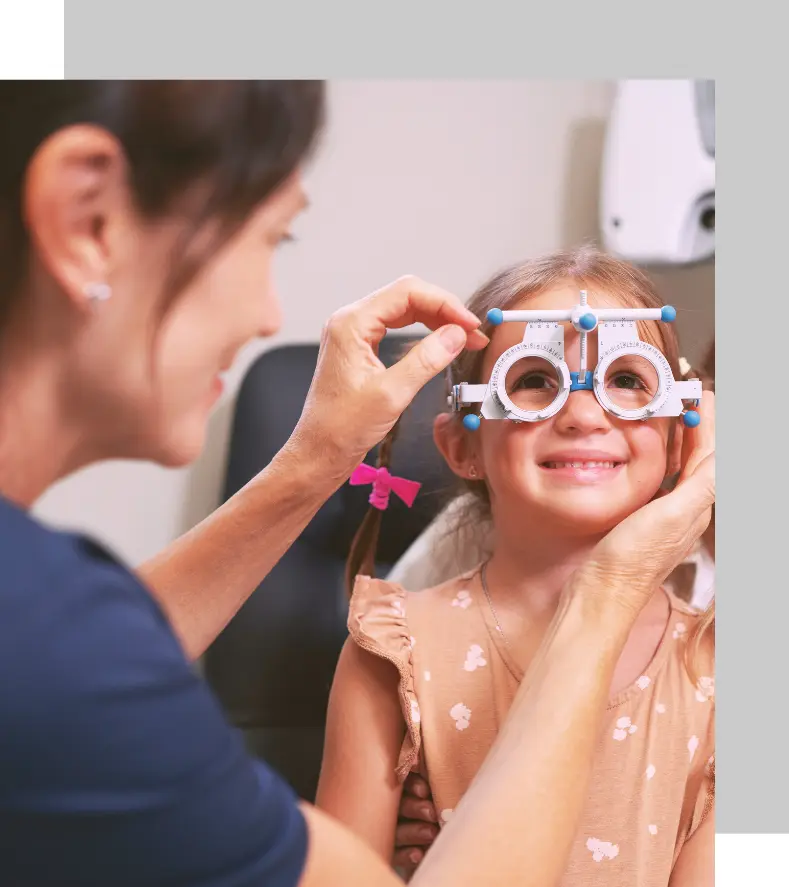
Here Are Some Common Types Of Pediatric Eye:
Strabismus
Nystagmus
Refractive Errors
Pediatric Cataracts
Amblyopia
Binocular vision dysfunction (BVD)
Convergence Insufficiency
Diabetic Eye
Diabetic eye care is vital for people managing diabetes, because the situation poses significant dangers to vision fitness. At the best eye hospital in Mathura, we understand the importance of addressing these risks.
Diabetes can lead to diabetic retinopathy, a circumstance wherein extended blood sugar tiers harm blood vessels in the retina. Over time, this damage can motive vision loss or even blindness if left untreated.
Regular eye checks are important for early detection and intervention, as symptoms may not be significant until the disease has improved.
Managing blood sugar stages, blood stress, and cholesterol can assist lessen the danger of developing diabetic eye complications.
Additionally, retaining a healthful way of life and following a personalized eye care plan endorsed by way of healthcare companies are key in preserving vision and common eye health for those with diabetes.
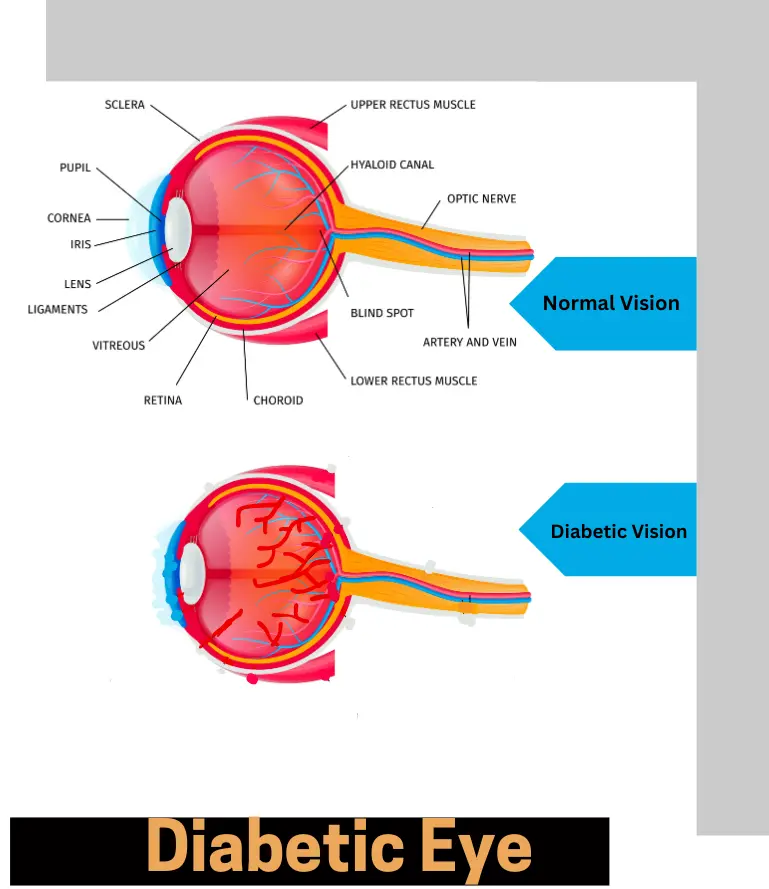
Here Are Some Common Types Of Diabetic Eye:
Amblyopia (Lazy Eye)
Ptosis (Drooping Eyelid)
Strabismus (Crossed Eyes)
Retinopathy of Prematurity
Retinoblastoma
Congenital Cataracts
Nystagmus
Optic Nerve Hypoplasia
Topical Phaco
A recent advancement in cataract surgery called topical phacoemulsification completely changes the process of extracting the lens by using topical anesthetic alone rather than traditional injections.
The method accelerates restoration cases and reduces pain for the affected person, which enhances surgical outcomes and patient satisfaction.
Topical phacoemulsification provides accuracy and protection by administering anesthetic via eye drops and employing micro-incisional techniques with ultrasonography era.
Improved visibility allows surgeons to better control patients during surgery, which reduces headaches and expedites the process of visual recovery. This ground-breaking method represents an evolution in the field of cataract control toward less invasive and more patient-centered ophthalmic therapies.
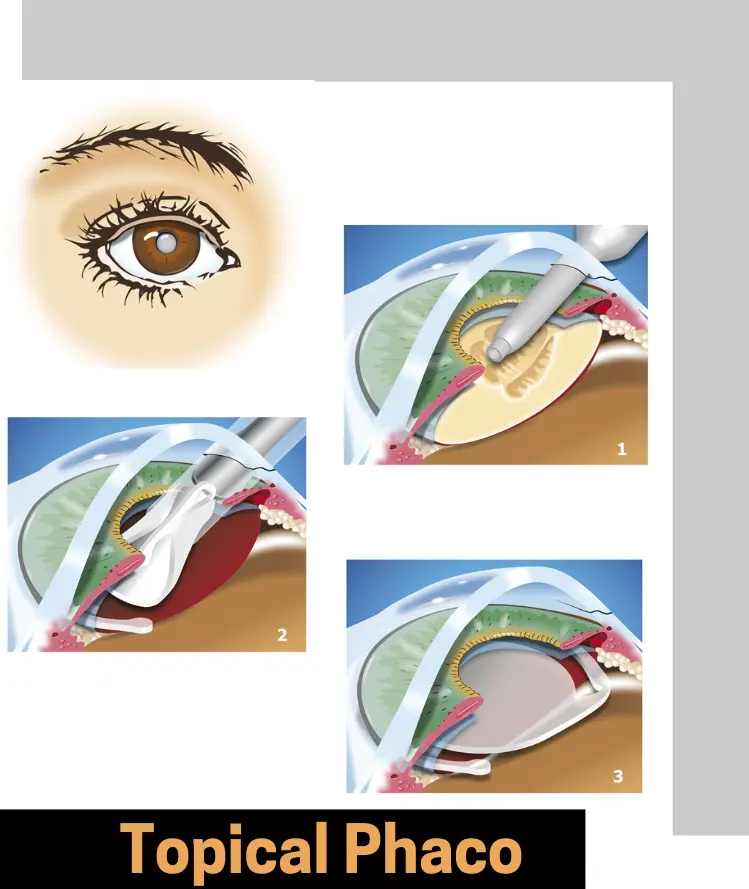
Here Are Some Common Types Of Topical Phaco:
Standard Phacoemulsification
Femtosecond Laser-Assisted Cataract Surgery (FLACS)
Micro-Incision Cataract Surgery
Bimanual Phacoemulsification
Torsional Phacoemulsification
Cataract Eye
Reduced vision caused by a cataract is a clouding of the eye’s lens. The lens becomes colorless to light due to the accumulation of protein. One or both eyes may be affected by a progressively expanding cataract.
At the best eye hospital in Mathura, we understand that specific medications, smoking, diabetes, and sun exposure are among the other causes, most common in older persons. Among the symptoms include shadows around lights, light sensitivity, impaired night vision, and foggy imagination and sensation.
Better light and stronger glasses can help manage early cataracts, but ultimately surgery is required to remove the clouded lens and implant a clear artificial one, restoring eyesight.
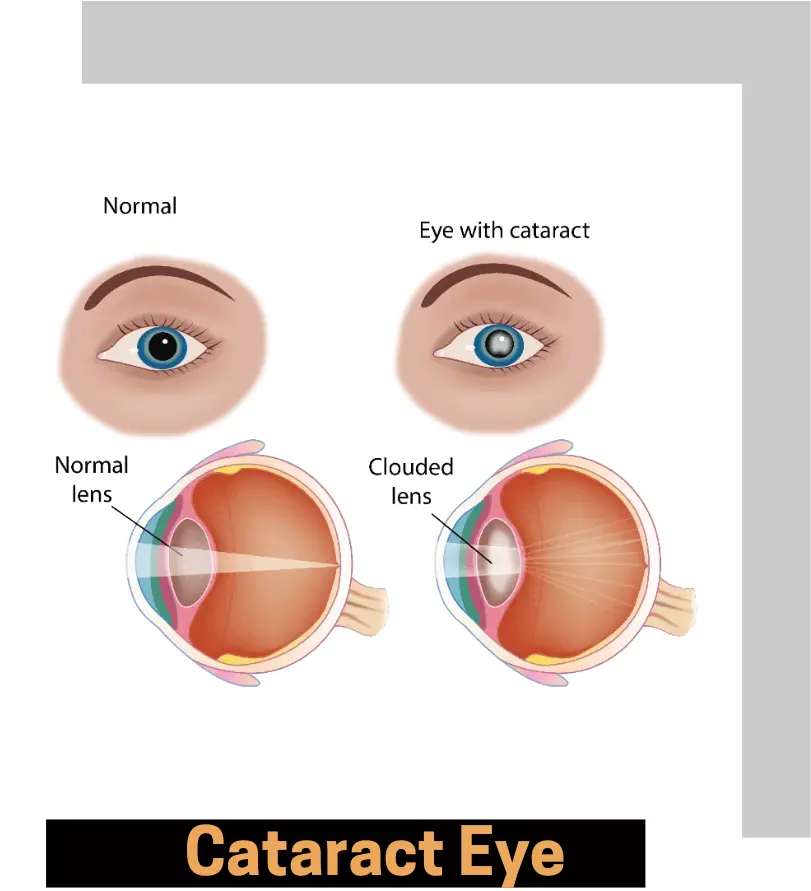
Here Are Some Common Types Of Cataract Eye:
Nuclear Cataract
Traumatic Cataract
Cortical Cataract
Radiation Cataract
Congenital Cataract
Posterior Subcapsular Cataract
Secondary Cataract










